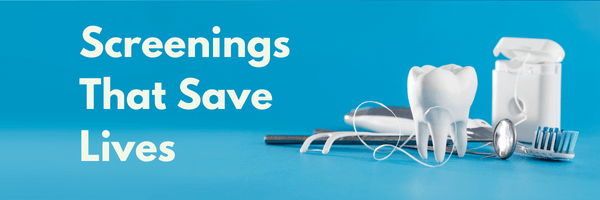.png)
Dental Hygiene Rated Among Top Jobs for Work-Life Balance
Posted April 12, 2023
Flexibility, including work-life balance, was one of the main things that drew me into dental hygiene. As a dental assistant in high school, I watched the hygienists balance their family and part-time dental hygiene careers and thought, I want that. My career has changed from full-time, to part-time, to temping and back, all based on what was happening in my life.
Work-life balance is important; we all have our lives outside work, and our careers are only part of who we are. Still, many of us spend most of our time in the confines of our office, and the truth is that our work lives can affect our personal ones. That, in part, is why it is so important to have a job with an outstanding work-life balance.
The good news for dental hygienists or those aspiring to become them is that this profession is constantly rated highly in that arena. According to the OECD (Organisation for Economic Co-operation and Development) Better Life Index, six areas are often considered when determining what indicators contribute to jobs with excellent work-life balance. Let’s look at these indicators and see how they stack up for the dental hygienist.
Indicators of Work-Life Balance for Dental Hygienists
According to the OECD, six of the leading indicators of work-life balance include:
- Total hours worked per week
- Fun rating
- Average pay
- Growth potential
- Flexibility
- Stress
Luckily, we have some solid data on a few of the above indicators and have searched the web for credible sources for others.
Total Hours Worked per Week
According to data from over 6,000 survey respondents, dental hygienists’ work hours vary depending on their experience. Full-time hygienists with three or fewer years of experience tend to work between 35 and 45 hours per week. Full-time employees with over three years of experience work 30 to 35 hours per week. Part-time employees with three or fewer years of experience work 20 to 25 hours per week, while those with three-plus years of experience work about 25 hours per week.
DentalPost’s survey data from 6,000+ dental hygienists in the third quarter of 2021 indicates relatively high satisfaction with their weekly hours. Less than a third (31%) said they would like to work more or fewer hours.
Fun Rating
For many, fun on the job provides a nice balance when going to work every day. We don’t have any hard and fast data on hygienist fun ratings, but we can assume that employees who have more fun at work – with patients and coworkers – enjoy a bit more balance while on the clock, which doesn’t result in stress.
Our February 2022 job satisfaction survey asked dental hygienists what they enjoy most about their jobs. 72% said it was their positive interactions with their patients.
Average Pay
DentalPost’s salary survey conducted in the third quarter of 2021 found that the average salary of dental hygienists depends significantly on their experience. Those earning the highest average income have worked 10 to 19 years. Reported total income for those who have worked for more years starts to fall slightly in direct correlation with the average number of hours they work per week.
And, yes, later in their careers, dental hygienists tend to work fewer hours. With so many opportunities available for employment, many hygienists can now “call the shots” to maintain an equilibrium between work demands, financial demands, and their personal life.
Here are some national Q3 2021 salary numbers based on total income reported by hygienists who work more than 30 hours per week on average.
| Average Income | |
| Mobile clinic | $59,333 |
| Public schools | $67,150 |
| Prison | $66,917 |
| University | $64,133 |
| Hospital | $71,690 |
| Military | $79,572 |
| Community clinic | $79,224 |
| Public health | $71,748 |
| Specialist private practice | $67,868 |
| Corporate practice | $73,758 |
| General private practice | $68,939 |
Our latest salary survey data, submitted by over 6,860 dental hygienists in Q3 of 2022, shows that 61.5% of dental hygienists are “satisfied” to “very satisfied” with their income. Regarding their hours, 61.75% like their hours the way they are. These are the highest satisfaction levels in the past four years. In 2022, benefits rose significantly, contributing to this high satisfaction. See the 2022 income increases in the 2023 Salary Survey Report.
Growth Potential
According to the Bureau of Labor Statistics, the employment of dental hygienists is projected to grow 33 percent from 2012 (the last time the study was published) to 2022. This is a much higher average than most occupations, showing promising signs for those interested or currently in this profession.
The shortage of hygienists to fill all open positions is enormous in 2022. There will be no end to job opportunities in the foreseeable future, perhaps for decades. In addition to being able to choose where they work, dental practices’ challenges to keep up with consumer demand are accelerating and impacting how we practice.
Rewards, Recognition, and Support
In 2022, employers appreciated, recognized, and rewarded dental hygienists like never before. Employers and managers are more amenable to creative changes and growth opportunities. They also listen to what dental hygienists want most to attract candidates for their open Hygiene positions and retain their hygienists.
DentalPost’s February 2022 Satisfaction Survey found that 30% of dental hygienists highly prize the ability to use their knowledge and skills, and 58% highly prize recognition. So, it is exciting to see a trend emerging among dental practices that significantly foster collaboration between dentists and hygienists to increase comprehensive care and health.
Collaborative partnerships are excelling in private practices and emerging and established dental service organizations or DSOs. When leadership teams encourage dentists and hygienists to study patient cases together to calibrate, it improves their trust in each other’s ability to provide aligned patient support.
One example of this is recognizing hygienists as clinical providers instead of technicians doing just prophies and SRPs. DSOs have training programs to enable hygienists to use AI computer vision platforms to detect and call the doctor’s attention to hidden oral health issues and training programs to introduce perio tray medicative therapy to patients diagnosed with chronic periodontal inflammation.
Flexibility
Our latest survey indicates that 40% of hygienists in private dental practices work part-time, and 31% of hygienists in corporate dental practices work part-time. One could relate the high percentage of part-time workers to parents who value the flexibility dental hygienists are afforded with numerous part-time employment opportunities. Our latest salary survey showed that 20% of hygienists work in more than one office, showing further proof of the flexibility of this career for those who want to work around personal commitments.
Since the pandemic’s start, many dental hygienists have begun temping. The most significant benefits of temping are flexibility, workplace diversity, and the wide variety of experiences you can gain. For more information, read these DentalPost articles about temping:
- 7 Reasons to Dental Temp
- Getting Started with Dental Temping
- Tips for Turning a Temp Gig into a Permanent Opportunity
- Want to Temp—Use this Mindset Checklist for Success
Stress
Coming out of the pandemic, DentalPost’s February 2022 Dental Professional Satisfaction Survey found that:
- 60.5% of responding hygienists felt chronically pressed for time.
- 77.75% of hygienists were experiencing physical, mental, and emotional fatigue.
- 34.5% had felt this way for less than one year.
- 35% had felt this way for the past 1 to 2 years.
- 30.5% had felt this way for more than 2 years.
Despite these stress-related stats,
- 50.5% had recommended their career to others.
- 70.75% were satisfied with their career overall.
DentalPost declared 2022 the year for self-care because we must care for ourselves before caring for others. It’s up to us as individuals to create our recovery-from-burnout plans. Long before the pandemic, a perennial stressor for hygienists is musculoskeletal pain. Additionally, one study by the Department of Social Dentistry & Behavioural Sciences titled Work Stress and Burnout among dental hygienists showed hygienists dealt with musculoskeletal pain, long working hours, and lack of support practice.
Your body is the most important tool you have. So, keep it in tip-top shape and seek a work environment that will not wreck it. Check out this article on RDHMag.com on how to prevent injuries and minimize occupational injuries to learn more about this topic.
Conclusions about Work-Life Balance and Dental Hygienists
If you are looking for motivation to become a dental hygienist, our 2022 job satisfaction survey found these measures of why responding hygienists chose their careers. They said:
| It pays well, and I could afford the education | 33.5% |
| I knew I would enjoy the work | 38% |
| I wanted a health profession | 54.75% |
| I desired to help others | 64.5% |
I may be biased as I love my job as a hygienist. Still, the above six work-life balance indicators look favorable in terms of a long, satisfying career with the ability to have favorable working hours, great pay, above-average industry growth, and lots of flexibility.
Updated April 2023.
We connect and educate more than 900,000 job seekers in the U.S. and Canada to build better places to work through teams that excel.




.png)




.png)
